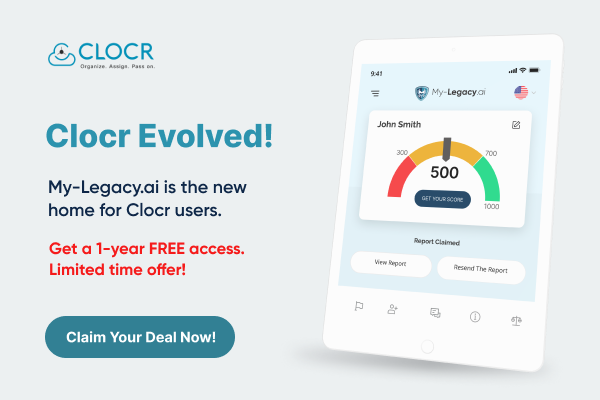In this Covid-19 pandemic, life has become uncertain. This is why Millennials are forced to prepare for the worst. And, as we know millennials have quite an active Digital Life. This means they have plenty of Digital Assets that need to be protected if something were to happen with them. And, creating a Digital Legacy Plan ensures their Digital Assets are protected.
Moreover, Millennials are often protective of their privacy. By planning their Digital Legacy they can decide what Digital Data (emails, photos, videos, cloud storage, etc.) they want to share and what they don’t. A Digital Legacy Plan ensures their privacy is respected even after their demise.
So if you are thinking of creating a Digital Legacy Plan then, here are a few steps to create one.
Steps To Create A Digital Legacy Plan For Millennials
Here are the steps for preparing a Digital Legacy Plan:
1. Inventory Of Your Digital Assets
Most millennials have a diverse range of online accounts and it’s difficult to remember all of them at all times. So, it’s best to go through the bookmarks, browsing history, and check all the apps that are downloaded on the computer or smartphones.
Once you recall everything, start making a list of all the Digital Assets you want to include in your Digital Legacy.
2. Decide What Happens To Your Account In Your Absence
It’s important to decide what you want to do with your accounts. For example, you can choose to close your online accounts, cancel subscriptions (Amazon, Netflix, etc.), or memorialize them.
3. Analyze Digital Legacy Policies
Before you plan Digital Legacy, make sure you go over the Digital Legacy policies of various sites. For instance, Apple Legacy allows users to designate a contact who can access their account after their demise. Similarly, Facebook Legacy Contact allows users to assign a family member to manage the account after their demise.
4. Choose Your Digital Executor
A Digital Executor is the person who makes sure your wishes are carried out after your demise. Moreover, they ensure your privacy is protected. You can choose a specific individual as a Digital Executor for certain online accounts.
For example, if you do not want your family members to handle your social media accounts, you can appoint your close friend as a Digital Executor – exclusively for your Social Media sites.
Make sure they are tech-savvy and have knowledge about different digital platforms. The role of a Digital Executor comes with great responsibilities. Thus, be certain it is someone you trust.
5. Legalize Your Digital Legacy
It’s important to legitimize your Digital Legacy by making it legal and secure. Some people prefer to include it in their existing Will. However, Will becomes public knowledge after your death, which can cause privacy concerns.
The other problem with including your Digital Legacy in your Will is you need to keep updating it after every password change. Thus, it’s best to create a Digital Estate Plan. It can keep up with password changes without making your information public.
These were some steps to prepare a Digital Legacy plan. To learn more about Digital Legacy Planning join us at Clocr today!

